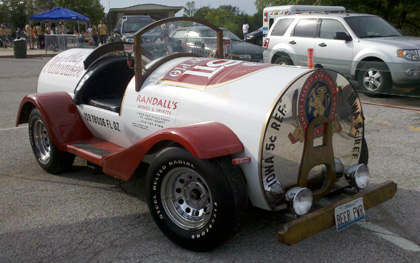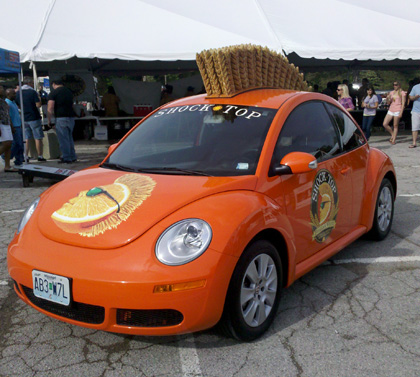* This is the reflective, toned-down version of how Darren of Beer Sweden really felt at the conclusion of the European Beer Bloggers Conference 2011: “I believe I have just witnessed the genre of beer blogging come of age in London and stake its claim as a credible and indispensable media source of the future.”
He understands the bloggerstalkingaboutblogs dynamic, at the end writing, “I apologise if this post is a little too much blog and not enough beer.” But, my goodness, such enthusiasm. So one more excerpt: “What I learnt has left me in no doubt bloggers are the vanguard of modern beer media.”
* Those are bold words, but Mark Dredge (who obviously isn’t biased because he acted at UK organizer, but that doesn’t mean he has to sit silent) is inclined to agree. Be sure the read the comments that follow.
* Dark Lord Haiku Contest. From STL Hops. Four winners. Four different vintages of Three Floyds Dark Lord. One stipulation. You must pick up the bottle in person in St. Louis.
* The case against the em dash. “According to Lynne Truss—the closest thing we’ve got to a celebrity grammarian, thanks to her best-seller Eats, Shoots and Leaves—people use the em dash because ‘they know you can’t use it wrongly—which for a punctuation mark, is an uncommon virtue.'” Isn’t this something that should be discussed at a blogging conference?
* “High alcohol wines lose both focus and complexity.” Could the same be said about beer?
* When brewery suppliers go vertical. Thomas at Geistbeer Brewing Blog considers the consequences for both homebrewers and small batch brewers.
* The return of the wanderer. Jack Curtin has made it home from the Wild West. I point this out because Jeff Alworth suggests we all give Liquid Diet a link to boost Jack’s Wikio rankings.
* Wallace, Idaho. Why wasn’t there a brewery at the entrance of the Wallace RV Park when we passed by during our Grand Adventure?

